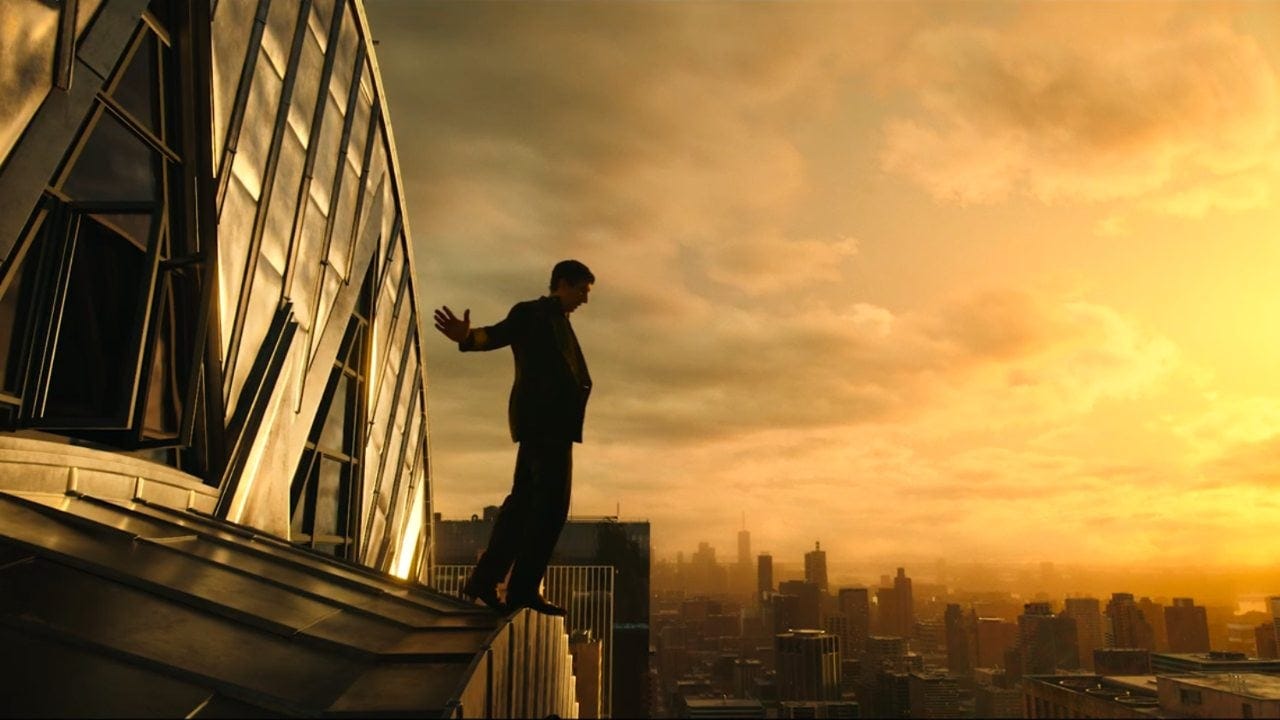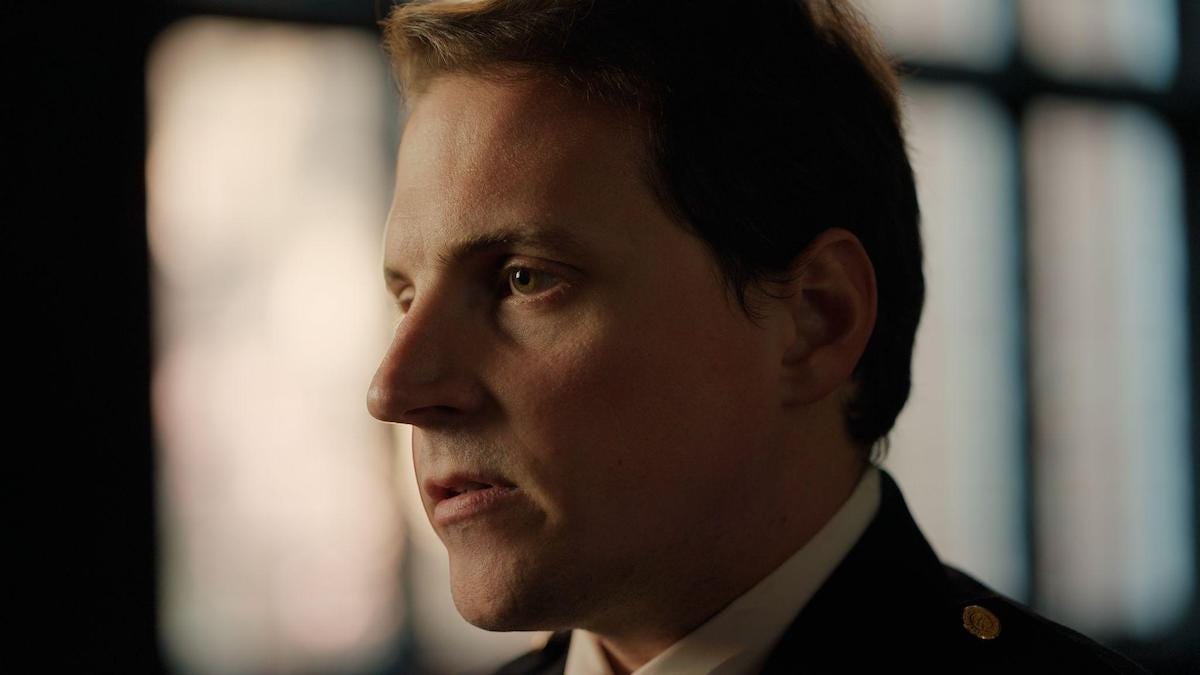Past Is Prologue: Or, Apocalypse Then and Now
Plus: a sense of ‘The Sixth’ assigned!
A few months back I talked to Sam Wasson about his book, The Path to Paradise, which details the rise and fall of Francis Ford Coppola’s American Zoetrope studio and is focused largely on the making of Apocalypse Now. I highly recommend you listen to the podcast, then read the book, and then watch Hearts of Darkness: A Filmmaker’s Apocalypse, a documentary filled with footage shot by Eleanor Coppola on the set of her husband Francis’s production.1
I want you to absorb the story of Apocalypse Now—with its constant on-set rewrites and years-long shooting schedule; moments of actorly insanity and directorly despair; literal natural disasters and diseases derailing production—to see what a truly troubled production looks like. Everyone involved in that film seemed to go a little nuts, everything about that film seems, in hindsight, like it was a little nuts. And everyone agrees, now, that it is a masterpiece of the first order, an epic look into civilizational breakdown. Did the madness lead to the greatness? Who can say. It probably didn’t hurt.
After you soak in that insanity, compare the stories of Apocalypse Now to the making of Megalopolis. Not the years of writing, rewriting, near-starts derailed by 9/11, none of that. Simply the actual production of the film. Because if you look at the production of the film, you see … a movie that shot for four or five months at the end of 2022 and beginning of 2023 and has been in post-production for the last year (a fairly normal length of time) and will debut at Cannes in the coming days.
Now, the film itself might be a disaster; I’d guess there’s a reason none of the studios or distributors are lining up to throw nine figures in advertising costs in the hopes of selling this to mass audiences.2 But the production seems to have gone … pretty smoothly! Even the hit pieces on Megalopolis are grasping at the thinnest of straws.
I mean, just read Steve Rose’s piece. Consider this passage:
Rather than using digital techniques, Coppola wanted to achieve the effect through old-school methods, using projectors and mirrors, much as he had done on Dracula, 30 years earlier. “That’s great, except nobody can move,” says the crew member. “So they basically strapped Adam Driver into a chair for six hours, and they literally took a $100 projector and projected an image on the side of his head. I’m all for experimentation, but this is really what you want to do the first day with your $10m actor?” The effect would have been quick and easy to create digitally, they say. “So he [Coppola] spends literally half of a day on what could have been done in 10 minutes.”
To summarize: Francis Ford Coppola spent half a day working on one shot of the film and this is ... a bad thing? Because he didn’t want it to look like your standard CG slop?
The lowest blow is this half-hearted effort to get Coppola MeToo’d:
Several sources also felt that Coppola could be “old school” in his behaviour around women. He allegedly pulled women to sit on his lap, for example. And during one bacchanalian nightclub scene being shot for the film, witnesses say, Coppola came on to the set and tried to kiss some of the topless and scantily clad female extras. He apparently claimed he was “trying to get them in the mood”.
The sourcing here is important: it’s not the actresses leveling this complaint, just “witnesses.” Even Rose doesn’t seem to put much stock in the charge, given that it’s a tossed-off paragraph buried in a lengthy list of complaints rather than the headline accusation.
Anyway, I just feel like we’re really defining disasters down. One of the fascinating things about modern discourse of all sorts is the sped-up nature of every cycle of discussion. We’re going to go through a whole “it’s a disaster/it’s a masterpiece/it’s a disaster/it was a trainwreck to shoot/should we cancel Coppola?/no look at this trailer, it’s a masterpiece!/it’s a disasterpiece!” cycle before the film even premieres at Cannes.
It’s enough to make one yearn for the good old days, when all you had to worry about was a typhoon washing away your set.
Roger Corman passed away at the ripe old age of 98 this weekend, so Alyssa, Peter, and I thought we’d discuss his legacy and ask if there’s a modern Corman on this Friday’s Across the Movie Aisle.
I hope you check it out!
Links!
This week I reviewed Poolman, which I think is better than its critical reputation suggests. I also did a medium-length dive into noirs, neo-noirs, and pseudo-noirs.
On Across the Movie Aisle this week, Alyssa, Peter, and I discussed that Apple ad everyone was all hot and bothered about last week. Controversy or nontroversy? We debate, you decide.
This interview with Kevin Costner in Deadline is amazing. Two things jump out. Thing the first: Between Costner’s Horizon films and Coppola’s Megalopolis, we truly live in a golden age of filmmakers taking one last big, bold stand to get their visions out into the world. You love to see it! Thing the second: Costner gets very annoyed when Mike Fleming suggests DVDs are dying, and while physical media is absolutely on the wane Costner is the sort of actor with the sort of key demographic that is very much in vogue in the one place where DVDs still sell well: Walmart.
Repeat podcast guest Jason Pargin (author of the Zoey Ashe series and the John Dies at the End series) has a new book coming out in September: I’m Starting to Worry About This Black Box of Doom. You should buy a copy and you should buy it through Parnassus Books, because if you do that you can get it signed by the author.
Matt Zoller Seitz highlights the lack of smoking in Palm Royale, an AppleTV+ series set in Florida in the 1960s. And while this is certainly an amusing quirk of the show (which I watched all of and quite enjoyed, even if the finale seemed a little off), it’s just indicative of the show’s real problem, which is that it’s entirely a product of the time it was made. All the heroes have all the right (read: modern) social beliefs; all the villains have the wrong (read: outdated) social beliefs. Smoking doesn’t exist in modernity—particularly, I would wager, in the areas where the show’s writers exist—hence it does not exist on the show.
Assigned Viewing: The Sixth (VOD)
I don’t suggest a ton of documentaries and I don’t review/discuss a ton of politically charged things, because I want this corner of The Bulwark to be slightly less political than elsewhere. Hey: We all deserve a respite, a place to take a breather. But The Sixth is an important documentary, particularly if you’ve grown frustrated, as I have, with folks who have downplayed the events of January 6 as a nothingburger, some protests that got a little out of hand, a few people touring the Capitol who wandered into areas they didn’t know they should be in. Those folks should be forced to watch the videos of cops getting crushed in doors and rioters leading phalanx-style charges against cops, should be made to hear the staffers and cops talking about how afraid they were while violent mobs roamed the corridors looking for Members of Congress to intimidate.
Republicans and their friends in conservative media have done their best to downplay the riotous assembly that was January 6—it’s embarrassing, and honestly confronting what happened would mean rejecting Trump in the harshest possible way rather than wishy-washily saying “well I won’t vote for him”—and The Sixth is a welcome reminder just how bad things got that day. I have directors Sean Fine and Andrea Nix Fine on the podcast this weekend to discuss their film; that episode goes live tomorrow. I hope you listen. And I hope you not only watch their movie but tell a friend to watch it. It’s only six bucks to rent on Amazon, Apple, etc. Carve out a couple of hours this weekend to watch it.
A copy of the documentary is included in the big 4K set that came out a couple of years ago and is now, oddly, out of print. Which feels like an enormous mistake given that everyone is currently talking about Francis Ford Coppola at the moment. But what do I know.
As I said on Twitter a few months back, I will be there day one for Megalopolis; I will watch it in IMAX or Dolby or whatever Coppola’s preferred screening format is. I’m also a weirdo film critic and am completely non-representative of the filmgoing public; they know Coppola as the guy who made some good movies 50 years ago and since then has made stuff like Twixt and Tetro. Scratch that: the average American doesn’t even know about Twixt or Tetro, but if they did know about Twixt or Tetro they’d probably be annoyed by them. Having watched the trailer for Megalopolis several times now, I am struck both by its beauty and by the idea that spending $100 million to get today’s filmgoers in theaters to see this is, likely, complete and utter folly. Needless to say, the heatedly mixed reviews out of Cannes don’t bode well for the film’s commercial (as opposed to artistic) prospects.





i interviewed the directors of the sixth here IF YOU CARE https://podcasts.apple.com/us/podcast/the-new-abnormal/id1508202790?i=1000654554440
The Vulture article about smoking reminded me of the scene in "Thank You for Smoking" with Rob Lowe where he and Aaron Eckhart lament that only "RAV's" (Russians, Arabs and Villains) are allowed to smoke in movies anymore, then at the end of the movie when William H. Macy's character has launched a campaign to replace cigarettes in classic movies with candy. Nota bene: I am currently watching Season Three of True Detective, and there are a lot of great smoking scenes in it.